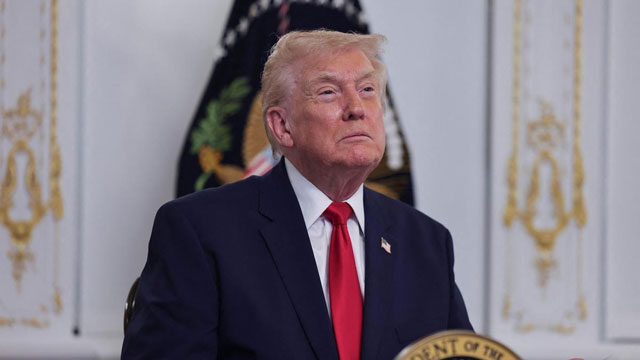Daijiworld Media Network - Washington
Washington, Nov 28: In a sharp escalation of his administration’s immigration stance, U.S. President Donald Trump on Thursday (November 27, 2025) declared that he intends to “permanently pause migration from all Third World Countries.” His remarks came a day after an Afghan national allegedly opened fire on two National Guard soldiers in Washington, triggering fresh political outrage and renewed calls for stricter border controls.
Taking to social media, President Trump said the United States must “fully recover” from what he described as years of unchecked immigration. He vowed to reverse “millions” of admissions granted under former President Joe Biden and remove “anyone who is not a net asset to the United States.” He further warned that federal benefits and subsidies would be cut off for all non-U.S. citizens, and that foreign nationals deemed security risks or “non-compatible with Western Civilisation” would face deportation.

The Trump administration also announced a sweeping review of all Green Cards issued to immigrants from what it labelled “countries of concern.” According to updated guidance released by U.S. Citizenship and Immigration Services (USCIS), officials will now factor in “negative, country-specific risks” while assessing applicants from 19 high-risk nations.
These include Afghanistan, Myanmar, Burundi, Chad, the Democratic Republic of the Congo, Cuba, Equatorial Guinea, Eritrea, Haiti, Iran, Laos, Libya, Sierra Leone, Somalia, Sudan, Togo, Turkmenistan, Venezuela and Yemen — the same nations covered by a travel ban issued by Mr. Trump earlier in June.
In another online post, the President claimed that the United States currently hosts “53 million” foreign nationals, alleging that “most” were dependent on welfare or linked to criminal networks — a statement that has already drawn criticism from rights groups and policy experts for lack of official verification.
Mr. Trump’s comments, ending incongruously with a Thanksgiving greeting, underscore the confrontational tone of his second term, which has been dominated by an aggressive deportation drive and tightening of immigration pathways. With the administration pushing for what the President called “REVERSE MIGRATION,” observers expect further policy shifts that could significantly reshape America’s immigration landscape in the coming months.